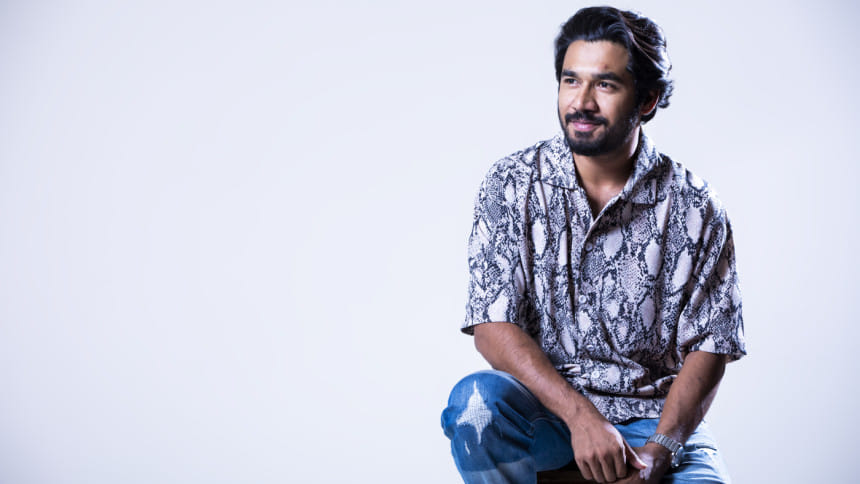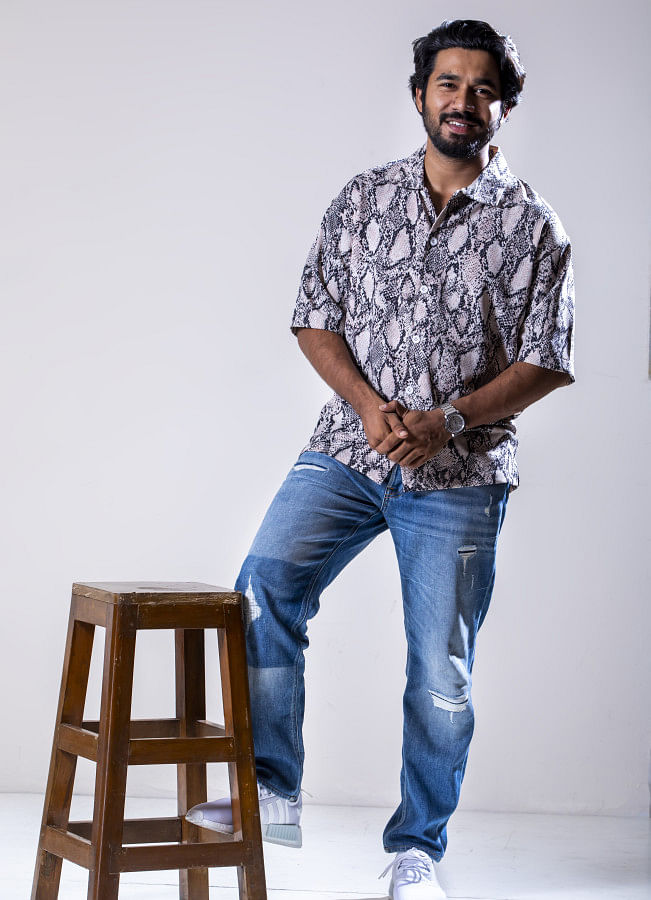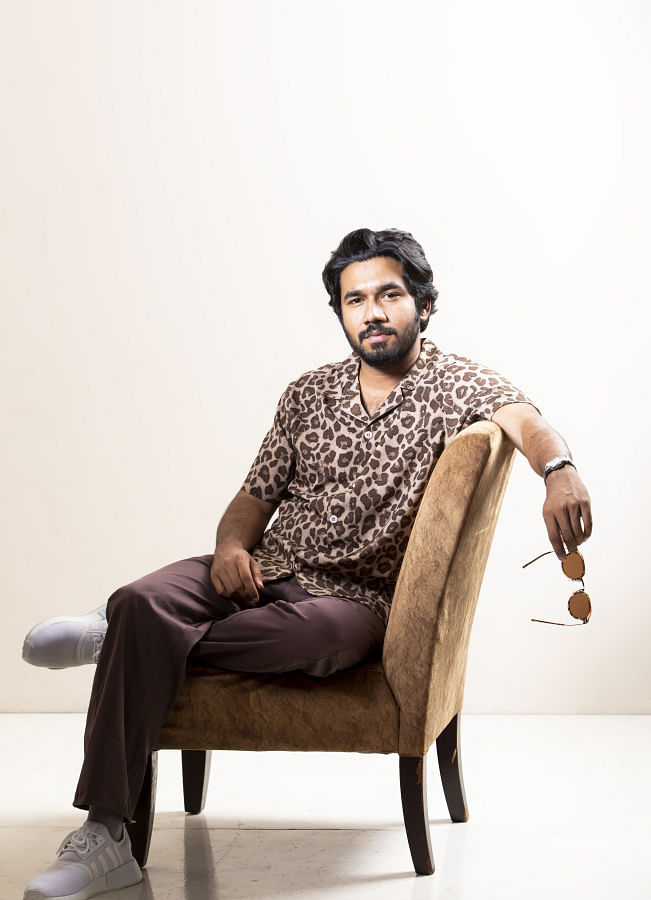Basar urges empathy among all

Khairul Basar, one of the most promising young stars of the Bangladeshi entertainment industry, is set to grace the small screens this Eid-ul-Azha with multiple new projects. Though still caught up in the hectic pace of shooting for the upcoming festival, the actor took a thoughtful pause to reflect on his childhood memories, present-day responsibilities, and the deeper meaning of this sacred festival.

"Growing up, there was a special kind of joy in visiting the cattle hub with my paternal grandfather during Eid," Basar shared, his voice laced with nostalgia. "My maternal uncle and grandfather would come over to our house, and together we'd head out to the cattle market. For us children, it was an event we looked forward to for days. The sheer excitement of being surrounded by cattle, the buzz of the market, and the chance to be part of the process—it was magical."
However, with time comes change, and for Basar, that change has brought a more grounded, purposeful experience. "Nowadays, we go on our own, with a sense of duty. My father, my brother, and I—all of us take this responsibility seriously," shared the Networker Baire actor. "Choosing the sacrificial animal is no longer just an adventure; it's a significant task. The entire day becomes a mix of tradition, responsibility, and spiritual fulfilment. I personally see to everything—from selecting the animal to ensuring the process is carried out properly."
But Basar's understanding of Eid-ul-Azha doesn't end at the symbolic sacrifice. He speaks with quiet intensity about the deeper philosophical message of the festival—one rooted in compassion, restraint, and empathy—values he believes society is gradually losing sight of.
"In recent times, we've seen how people are becoming increasingly impatient and intolerant," he observed. "Social media arguments escalate too quickly, tempers flare in public spaces, and empathy seems to be vanishing. In such a climate, we must pause and reflect on our actions. Before lashing out or judging others, we must ask ourselves: What is my role here? What are my responsibilities as a human being and as a citizen?"

This sense of collective responsibility extends to supporting those who are less fortunate—especially during Eid-ul-Azha, when countless families across the country quietly hope for the generosity of others.
"In every neighbourhood, there are people who wait all year for this Eid," Basar said. "For many of them, it's the only time they get to taste red meat. Their earnings aren't enough to cover even basic needs, let alone a festival meal. It's heartbreaking to think that while some of us feast in abundance, others might not have enough to offer their children even a small piece of meat."
Basar is gearing up for a packed schedule, featuring in a variety of projects with some of the industry's most prominent directors. Audiences can look forward to seeing him in Shinduk, helmed by the ever-intriguing Vicky Zahed, as well as Obhimaan by Shetu Arif. He'll also be collaborating with directors Rafat Mozumder Rinku and Pothik Shadhan.

When asked about his Eid plans, Basar shared that he's likely to spend the festival in Dhaka — though if not, Gazipur is his alternative retreat. Speaking of Eid traditions, he added with a smile that he still prefers to purchase his sacrificial cow with cash in hand, staying true to the customs he grew up with.
With sincerity and humility, Basar urges his fans and well-wishers to take that extra step. "Let's not forget them. If we each look around and offer what we can—no matter how small—we can ensure that our Eid isn't just meaningful for us, but also brings happiness to someone else. That, I believe, is the true spirit of Eid-ul-Azha."

 For all latest news, follow The Daily Star's Google News channel.
For all latest news, follow The Daily Star's Google News channel. 









Comments